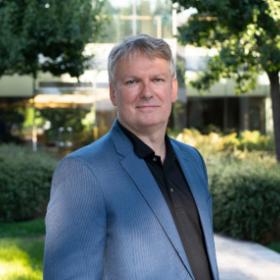
Launch of Global Commission on the Stability of Cyberspace
First organization of its kind dedicated to developing norms and policies to improve cyberspace stability and security
MUNICH, Feb. 18, 2017 - The Kingdom of the Netherlands, together with The Hague Centre for Strategic Studies (HCSS) and the EastWest Institute (EWI) today announced the establishment of the Global Commission on the Stability of Cyberspace (GCSC)—a global body formed to convene key global stakeholders to develop proposals for norms and policy initiatives to improve the stability and security of cyberspace. Principal supporters of this initiative include the Internet Society (ISOC) and Microsoft.
The GCSC, based in The Hague, will be chaired by Marina Kaljurand, former Foreign Minister of Estonia, and will be comprised of over two dozen prominent independent commissioners, from over 15 countries, with the expertise and legitimacy to speak on different aspects of cyberspace. The Commission will develop proposals for norms and policies to enhance the stability of cyberspace.
“Cyberspace is becoming increasingly exploited. It requires greater coordination among us all. It needs the development of norms to provide a stable and secure environment. So we can all benefit,” said Bert Koenders, Dutch Minister of Foreign Affairs of the Kingdom of the Netherlands. “This is a unique initiative to ensure that we drive activities in the right direction. We are on the threshold of a new era. It’s time to safeguard our cyberspace.”
Commissioners of the GCSC include co-chairs Michael Chertoff (USA) and Latha Reddy (India), as well as Joseph S. Nye (USA), Jeff Moss (USA), Wolfgang Kleinwächter (Germany), William Saito (Japan), Olaf Kolkman (The Netherlands), Marietje Schaake (The Netherlands) and Virgilio Almeida (Brazil), with additional representation from China and Russia.
“As cyberspace continues to rapidly evolve, it offers distinct advantages to our way of life while also posing specific threats,” added Marina Kaljurand, GCSC Chair. “It is for this reason that this body was devised as a means to ensure the exchange of knowledge and ideas between governments, the business community, academia and concerned citizens. Each is affected by, and has a contributing role to play, in shaping cyberspace.”
The GCSC will convene over a three-year period to formulate policy recommendations for action—applicable to both government and the private sector led initiatives. Detailed recommendations will be published and advocated in capitals, corporate headquarters and with the general public worldwide.
“In our globally connected society, cybersecurity norms are essential to preserving a predictable, stable and secure cyberspace. The IT industry has a critical role to play to contribute to the development of effective norms and provide the technical expertise necessary to assist in their implementation,” added Scott Charney, Corporate Vice President, Trustworthy Computing, Microsoft. “As a company, we’ve been actively engaged in the norms debate for years and support this initiative as a very important contribution to reducing risk in cyberspace and protecting global trust in technology.”
“The stability of cyberspace will only be achieved through collective responsibility and collective action. Key to this collaborative approach to security is input from the technical community and civil society, which we look forward to bringing to the GCSC,” explained Olaf Kolkman, Chief Internet Technology Officer for the Internet Society.
The GCSC is supported by two Directors, Alexander Klimburg of The Hague Centre for Strategic Studies and Bruce McConnell of the EastWest Institute.
Learn more about the GCSC, here.
About the Hague Centre for Strategic Studies
The Hague Centre for Strategic Studies (HCSS) is an independent private think tank established in 2007. The Centre focuses on issues that crossover the domains of geopolitics, security, and geo-economics, among which international security and defense, national security, conflict studies, cybersecurity, resource scarcity. HCSS conducts contract research for public sector organizations, such as ministries of defense, foreign affairs and security; international organizations (NATO, European Commission); NGOs as Greenpeace; and private sector companies. We stress an interdisciplinary perspective, combine quantitative and qualitative research methods for our analysis, and present intuitively and action-oriented results. Learn More
About the EastWest Institute
The EastWest Institute works to reduce international conflict, addressing seemingly intractable problems that threaten world security and stability. EWI forges new connections and build trust among global leaders and influencers, help create practical new ideas and take action. Independent and nonprofit since our founding in 1980, EWI has offices in New York, Brussels, Moscow, Washington, D.C. Dallas, San Francisco and Istanbul. Learn More
About the Internet Society
Founded by Internet pioneers, the Internet Society (ISOC) is a non-profit organization dedicated to ensuring the open development, evolution, and use of the Internet. Working through a global community of chapters and members, the Internet Society collaborates with a broad range of groups to promote the technologies that keep the Internet safe and secure, and advocate for policies that enable universal access. The Internet Society is also the organizational home of the Internet Engineering Task Force (IETF).
About Microsoft
Microsoft (Nasdaq “MSFT” @microsoft) is the leading platform and productivity company for the mobile-first, cloud-first world, and its mission is to empower every person and every organization on the planet to achieve more.
Learn more about our proposed norms for cybersecurity here or visit Microsoft Secure Blog.

